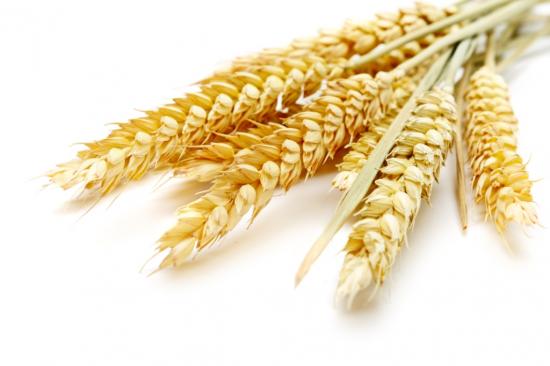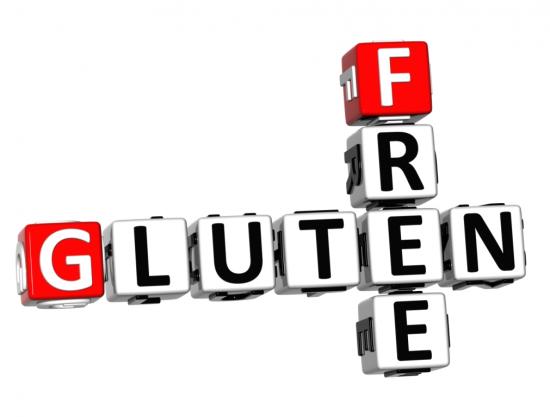Gluten Free Products
A study by the German Coeliac Association (DZG) indicates that roughly 400,000 people suffer from gluten intolerance and are therefore forced largely renounce bread, oatmeal, pizza, noodles, meat in breadcrumbs, cookies, cake and much more. BODY ATTACK offers a broad range of gluten free products to provide those affected with dietary and sports nutrition.
Products are declared gluten free if their gluten content is no more than 20 mg/kg. Most commonly, these foods carry the symbol of a crossed-out ear of corn.
Gluten describes various protein mixtures found in the seeds of different crops. Among other things, gluten is responsible for the elasticity of dough and therefore plays a particularly important role during baking.
But some people are allergic to gluten. They suffer from a so-called gluten intolerance. Chronic inflammation of the small intestinal mucous membranes and the resulting gastrointestinal problems may follow.
Gluten is contained in many cereals. They include wheat, oats and barley. Other products containing cereal extracts, for instance pizza dough, contain gluten. Furthermore, the elasticity gluten provides means that many convenience dishes or thickened sauces come with gluten protein.
Since 2005, ingredients containing gluten must be listed as ingredients in packaged foods (cf. Deutsche Zöliakie Gesellschaft e.V.).
But some people are allergic to gluten. They suffer from a so-called gluten intolerance. Chronic inflammation of the small intestinal mucous membranes and the resulting gastrointestinal problems may follow.
Gluten is contained in many cereals. They include wheat, oats and barley. Other products containing cereal extracts, for instance pizza dough, contain gluten. Furthermore, the elasticity gluten provides means that many convenience dishes or thickened sauces come with gluten protein.
Since 2005, ingredients containing gluten must be listed as ingredients in packaged foods (cf. Deutsche Zöliakie Gesellschaft e.V.).
But many foods that are gluten free do not deliver sufficient quantities of important nutrients. This is why people transitioning to gluten free nutrition may experience an insufficient supply of vital substances. It is therefore important that those affected not only look for products without gluten, but also make an effort to supply their bodies deliberately with products such as fruit and vegetables that are rich in dietary fibre and nutrients.
But what exactly is gluten intolerance?
 The term gluten intolerance or gluten sensitivity must be distinguished from gluten-related conditions such as coeliac disease or wheat allergy.
The term gluten intolerance or gluten sensitivity must be distinguished from gluten-related conditions such as coeliac disease or wheat allergy.Coeliac disease
Coeliac disease describes a genetic autoimmune disease, triggered by gluten and leading to the inflammation of the small intestine. Chronic diarrhoea, stomach ache and nutrient deficiency are possible consequences.
People suffering from coeliac disease experience a hypersensitive response of the small intestines to gluten, or rather to elements contained in gluten. When gluten enters the small intestine via nutrients consumed, people suffering from coeliac disease experience inflammation of the so-called intestinal villi, which die after just a few hours. Villi are small folds in the mucous membrane that, among other things, filter important nutrients from food and pass them on to the blood. Nutrients such as vitamins and minerals will be insufficiently absorbed in these cases. Over time, this will lead to nutrient deficiency.
Coeliac disease is diagnosed by blood analysis and tissue biopsy in the intestines. Patients suffering from coeliac disease must renounce foods containing gluten, such as wheat or spelt, for their entire lives.
Wheat allergy
Unlike coeliac disease, people suffering from wheat allergy do not respond to gluten only, but also to other proteins contained in wheat. Wheat allergy will mostly affect the skin and the respiratory tract. Wheat allergy is diagnosed using allergy tests.
In wheat allergy, the immune system responds to allergens by utilising antibodies to attack the protein constituents. This leads to inflammation that may also cause stomachache.
Wheat allergy may be genetic, but can also be caused by certain environmental factors.
Gluten sensitivity
Unlike coeliac disease, gluten sensitivity is not an autoimmune disease. It is also not a food allergy.
To diagnose gluten sensitivity, it is first necessary to exclude the possibility of coeliac disease and wheat allergy. Blood analysis and a biopsy of the small intestine or a common allergy test, respectively, are used to ensure this.
If suffering from sensitivity, the body responds to gluten proteins with similar symptoms. This may include stomachache, nausea or diarrhoea. Unlike coeliac disease, gluten sensitivity is most commonly not lifelong. Temporary renouncing of foods containing gluten is sufficient in many cases to treat a temporary reaction to gluten.
Gluten free products
 Special products on which the cancelled ear of corn is depicted are now available in almost any supermarket. Drug stores and pharmacies also sell food products without gluten. BODY ATTACK itself provides a series of gluten free products and therefore offers the chance for alternative nutrition.
Special products on which the cancelled ear of corn is depicted are now available in almost any supermarket. Drug stores and pharmacies also sell food products without gluten. BODY ATTACK itself provides a series of gluten free products and therefore offers the chance for alternative nutrition.This includes gluten free amino acids alongside gluten free protein and carbohydrate products. In addition to selected sport and dietary nutrition, our range is also enhanced by nutrients from Schär, Europe´s market leader for gluten free food.
Products may be declared gluten free if they contain no more than 20 mg gluten per kg. Products that have no more than 100 mg per kg of product have a very low gluten content.
Many products are naturally free of gluten. They include fresh fruit and vegetables, but also pure meat or vegetable oils, nuts, leguminous vegetables, potatoes and buttermilk. Rice, maize and millet, also buckwheat, contain no gluten. A rule of thumb is that food is more likely to be gluten free the fresher it is and the less treatment it has received.
Dietary supplements and gluten intolerance
Dietary supplements in the form of vitamins and minerals have an important role to play, especially in gluten intolerance. After all, many gluten free foods do not contain as many nutrients as standard foods. This is why people with gluten intolerance may suffer from an insufficient supply of certain vitamins and minerals, also fibre. This includes vitamin B, Calcium and Iron.
Dietary supplements may be a sensible alternative if normal diet is unable to supply the body constantly and sufficiently with these nutrients. They provide nutrients such as vitamins, minerals and fibre in a concentrated form and therefore prevent symptoms of malnutrition.
This is why BODY ATTACK recommends taking additional vitamins and minerals. In addition to the aforementioned micronutrients, omega-3 and omega-6 fatty acids, alongside the amino acid Glutamine, may be sensible supplements.
Shutterstock/Scorpp/Curioso


